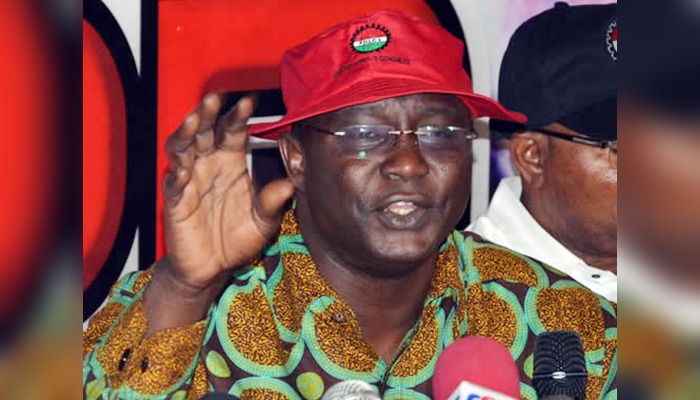The Nigeria Labour Congress (NLC) said that it would embark on a three-day warning strike immediately after the Tuesday and Wednesday nationwide protest in solidarity with the striking lecturers.
NLC President, Ayuba Wabba, stated this while speaking to journalists at the ongoing 18th NLC Rain School in Uyo, Akwa Ibom.
This was as the workers began a two-day nationwide protest Tuesday over prolonged closure of the Nigerian public universities for more than five months over unresolved issues of poor welfare and underfunding.
Read also
- NUPENG threatens to join NLC’s protest for universities’ shutdown
- ASUU/FG Imbroglio: NLC to begin three-day warning strike
- NLC Set to confront FG’s planned Fuel subsidy removal
Led by the NLC, workers across all sectors of the national economy filed out on Tuesday to commence a two-day nationwide protest against the continued shutdown of public universities and the attendant consequences including rising insecurity and unemployment.
The labour movement further stated that it might extend the warning to an indefinite strike if the federal government fails to resolve the issues with the university unions and have the schools reopen for Nigerian students.
“We have taken three levels of decision. First is the protest, which is going to be national tomorrow. After the protest, a three-day national warning strike will start, and if they fail to resolve the issues and bring back our kids to school, we go on indefinite strike.
“That is the decision of our National Executive Council. And what will be helpful for them is to check the timeline we have given for them to resolve the issues. We are optimistic that they will be willing this time because we are also willing to get our children back to school,” he said.
Speaking on the harsh living condition of Nigerians, Wabba said that it is not only the education sector that is in a shambles but the economy.
Wabba said, “I never knew that the exchange rate has moved within a week from N630 to N670. This is very frightening and it erodes the purchasing power of workers. There is no way we can continue in this direction and expect that there will be shared prosperity within workers, and within the large portion of Nigerians that are in the lower echelon at the economic ladder.
“Importantly is the issue of our children that are out of school for five months. Basically, it also requires a political decision for the issue to be sorted out. What is even more worrisome is the fact that they keep posting the graduation of their children in universities out the country on social media and then the universities where the children of the working class study are closed down.
“I was told today that we have three sets of students that ought to be in the university but unfortunately they have not even sorted out their admission challenges. So it is really a very frightening future for Nigerians, particularly the youths.”
He said the irony of it is that most of the political elite today benefited from free public education, wondering why it is impossible for them to fix our public education.
“Is it about the class divide, it honestly beats somebody’s imagination. That is why all of these issues resonate that we need to engage politically. We have also realised the fact that they have used different approaches to divide Nigerians.
“Unfortunately for them, NLC is a pan-Nigerian organisation that cannot be divided and workers should not allow themselves to be divided along ethnic or religious lines. This is just diversion of interest. Their division tool is happening now. Workers should be wiser, citizens should be wiser. We should work assiduously to unite Nigeria and not to divide Nigerians.”

